QuestionHello! I would like to know what you feed your birds. I have a Jenday conure that is almost naked. The Jenday shares a cage with a Patagonian parrot and he is looking a little rough....his feathers on his chest are not lying neat in an orderly fashion and he is mising some of his feathers, also. I have a parakeet and a canary who share a cage. The canary has terrible scales on its feet. Then, I have a molluccan cockatoo. He cries and fusses a lot and his chest is bare. I really want to get these birds looking nice again. I want to know if I should put a light on the birds, and if so, what kind? I just want to do what ever is going to make them look pretty again. Thank you for your advice. Mary Doerr in Virginia
AnswerHi, Mary. Thanks for posting your questions.
All of my parrots have Zupreem fruit blend pelleted food available to them 24/7, along with fresh water. In addition, I allow my parakeets and cockatiels to have some fortified seed AFTER they have eaten their daily soft food mix. My amazons are fed fresh vegetables, fruits, etc., daily in lieu of the soft food mix that I feed the rest (although sometimes I feed them the same soft food mix for variety). The key to feeding parrots successfully, i.e., in order to keep them healthy, is variety. The more variety, the better, as long as the variety is healthy. Healthy for a parrot is the same as healthy for a human, except parrots should not be fed certain foods like avacadoes, citrus seeds, caffeine, sugar, salt, baking chocolate, etc. The soft food mix I feed is based on cooked brown rice to which I add foods such as peas, shredded carrots, a little corn, shredded zucchini or squash, cooked barley, small pasta or ramen noodles (no sauce or flavoring), sometimes red peppers, sometimes crumbled corn bread, broccolli flowerettes, etc., etc. All my parrots also like corn bread (or different varieties of breads/muffin mixes), whole grain unsweetened cereals, whole grain breads, etc. I also offer greens once or twice a week, such as kale, mustard greens, and the like. I often offer spray millet to the smaller parrots. Once per week, I offer my amazons a seed mix.
It is not unusual for parrots to pluck themselves, or become featherless at the hands of another bird that likes to pluck other birds. If your conure(s) are missing feathers on top of or on the back of their head, where they cannot reach themselves, you may have a bird plucking the other. Obviously, a naked bird is not going through a moult, so there must be reasons he feels he needs to pluck himself (once you rule out another bird doing the plucking for the other bird). It could be bordom, a medical condition, a recent change in the home (addition or loss) or movement of the cage to another location within the home, stress, a home move, anxiety, fear, etc. The first thing you should do is rule out any medical problems for the feather loss. You know your birds better than anyone else....if you think there could be a medical reason for the poor feather condition(s), you should take your parrot(s) to see an avian veterinarian. Perhaps the Jenday doesn't like being caged with the Patagonian conure. How often do your parrots bathe? Bathing is essential for healthy feathers. Diet is also critical. Proper lighting is also required. Your parrots need to have toys and things to do during the day to stimulate them mentally. The more intelligent a parrot, the more human interaction it requires daily...how much time do you spend with them?
The canary could have scaly mites on it's feet. Scaly mites on feet often progress to the beak area. An avian veterinarian can give you some medication for this...one dose can cure the problem.
Cockatoos are famous for plucking. They are very intelligent parrots and require much human interaction. When they don't get the intellectual stimulation they require, they resort to plucking themselves. His crying, fussing, and plucking tells me that he is not a very happy bird (or is he crying/fussing as a result of the pain from plucking?).
Sounds to me like you need to make some changes with regard to your parrots. Lighting is important, but isn't the total solution. Sunlight from a window isn't enough...the glass filters out the important rays the birds need for good health. You need full spectrum lighting, such as that used for reptiles or over aquariums. You need to ensure your parrots are eating healthy (not just offering them the food but they have to consume it)(perhaps provide vitamin/mineral supplements if necessary to their soft food mix). Make sure none have any medical conditions that contribute to their feather problems by getting them to an avian vet if necessary. They need to bathe regularly, you should separate any birds that are plucking others (get the pluckers away from the pluckees), make sure each bird has enough mental stimulation and human interaction during the day to keep them happy, make sure their cages are large enough, make sure their environment is healthy (no smoking, no fumes, etc.), make sure they get enough sleep/rest each day, etc. There is a reason why they are plucking...you just need to figure out the reason(s)!
I have a website still under construction if you want to visit for additional information:
http://www.angelfire.com/falcon/birdinfo/index.html
If you have further questions or concerns or don't understand something I've stated or that is on my website, please come back.
Chrys

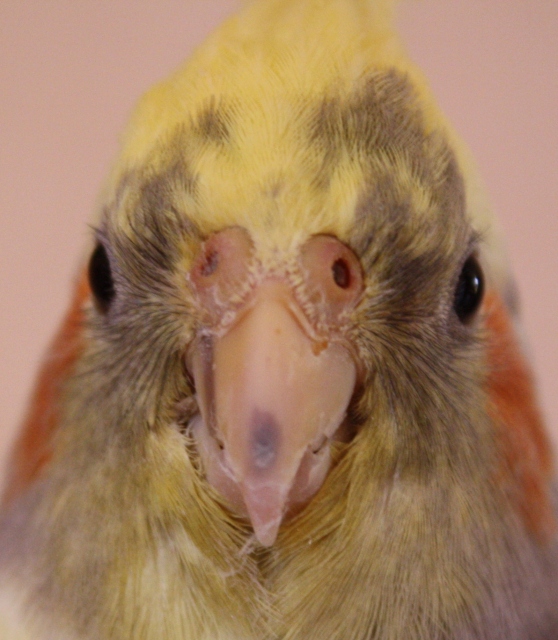 Bruise-like discoloration of beak (Cockatiel)
QuestionSasha
QUESTION: Our Cockatiel has develo
Bruise-like discoloration of beak (Cockatiel)
QuestionSasha
QUESTION: Our Cockatiel has develo
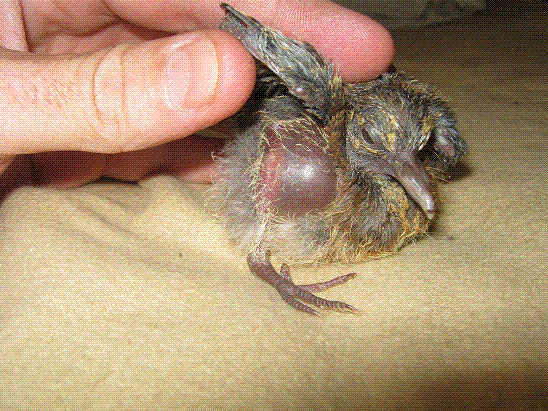 Baby Pigeon
Question
Cosmo
Hi Roger
We picked up a baby pigeon, ap
Baby Pigeon
Question
Cosmo
Hi Roger
We picked up a baby pigeon, ap
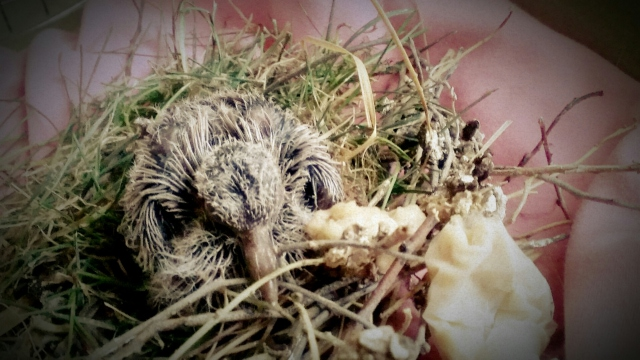 Baby Dove Care
Question
Baby Bird 1 Baby Bird 2
Hello, to
Baby Dove Care
Question
Baby Bird 1 Baby Bird 2
Hello, to
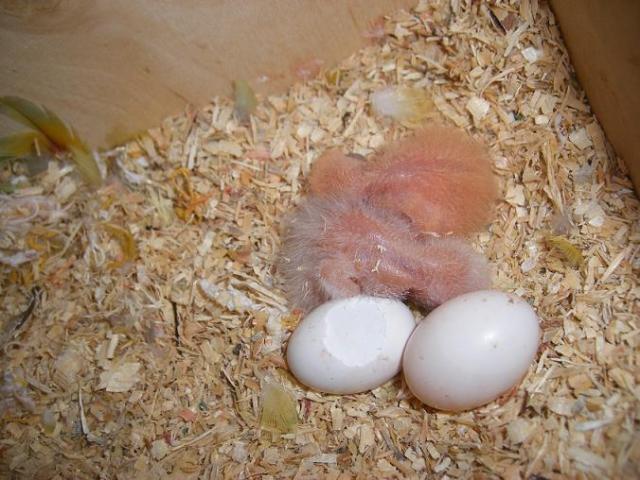 Eggs! :(
QuestionBroken Egg
QUESTION: I understand lovebi
Eggs! :(
QuestionBroken Egg
QUESTION: I understand lovebi
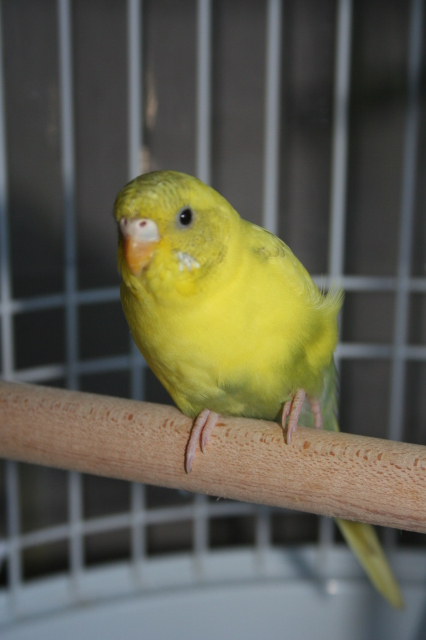 Budgie has broken foot?
Question
Maggies foot
Hi there! I got a baby budgie a f
Budgie has broken foot?
Question
Maggies foot
Hi there! I got a baby budgie a f